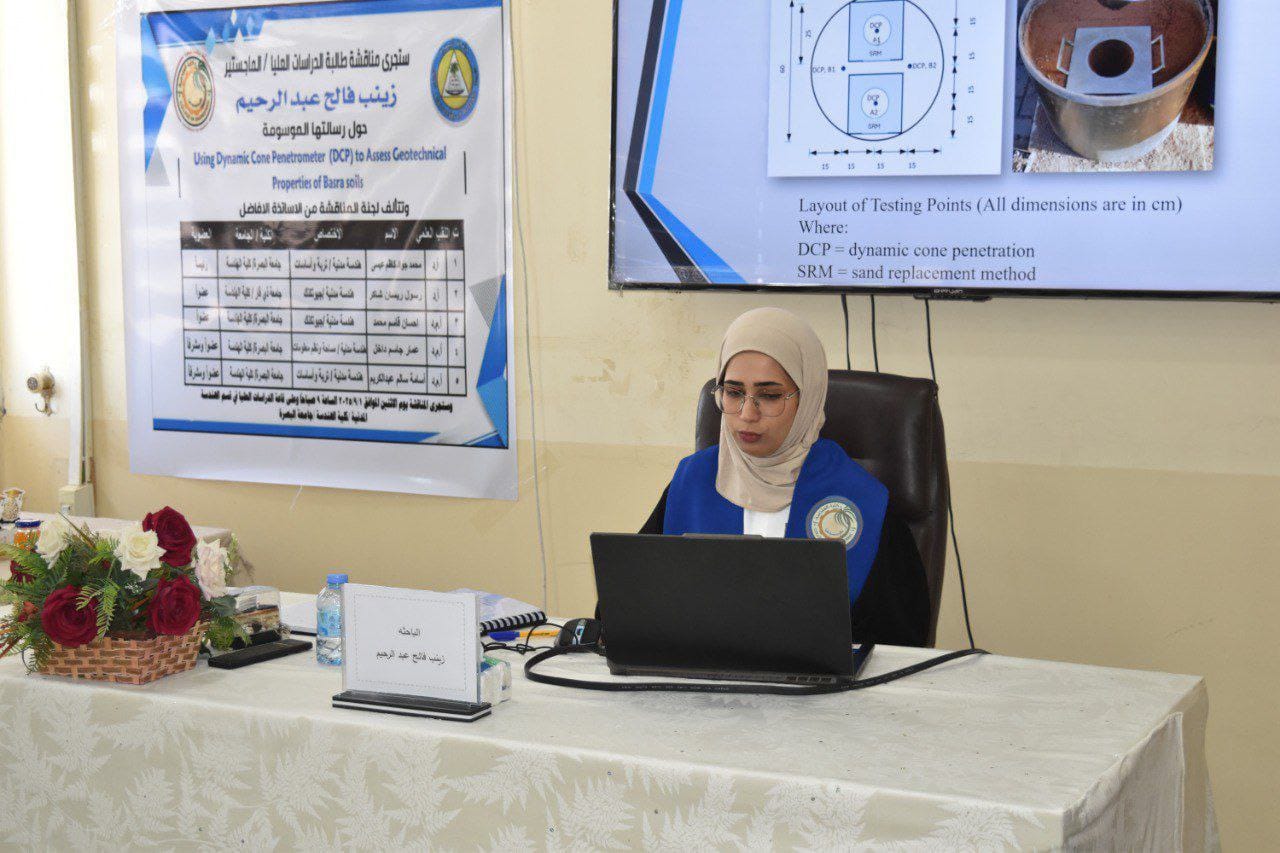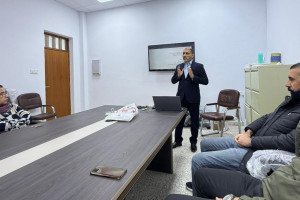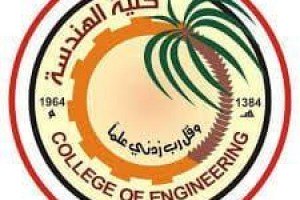
Researcher Zainab Faleh Abdul Rahim's master's thesis was discussed at the College of Engineering, Department of Civil Engineering, University of Basra, entitled Using Dynamic Cone Penetrometer (DCP) to
Assess Geotechnical Properties of Subbase
Materials in Basra city
The development of societies and the increase in population have led to an
increase in service projects and roads. In road projects, the subbase layer is
considered the basic layer that provides road stability. Therefore, it is important to
know the strength and efficiency of this layer. This has led to the emergence of the
need for investigation methods at a reasonable cost, with rapid execution, ease of
performance and repeatability. One of the commonly used in-situ tests for
determining field density is the sand replacement method (SRM) test; however, this
method is time-consuming and requires sample collection from the site. In contrast,
the dynamic cone penetration (DCP) test offers simplicity and speed in execution,
along with reliable results.
In this study, DCP and SRM tests were performed on three types of subbases,
which are the commonly used types in Basra. They are subbase type B, C, and D.
From these tests, DCPI, moisture content, and dry density were obtained. a simulated
environment for the site soil was created and three ranges of moisture content were
included.
The extracted data were entered into the statistical package for the Social Science
program software (SPSS, version 27). The results of the statistical analysis showed
that there is a very strong inverse relationship between dry density and dynamic cone
penetrometer index, and the relationship between water content and dynamic cone
penetrometer index is a very strong direct relationship. In addition, three equations
were developed for each type of subbase used, which facilitates obtaining results
from on-site tests.The proposed device of this study was able to reduce the effort and cost of field
tests for paving projects and became a suitable alternative to SRM testing to extract
the dry density on site.
Finally, the obtained equations demonstrated the power and efficiency of the DCP
device in use, in addition to its simplicity in operation







